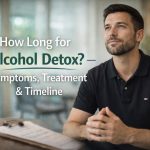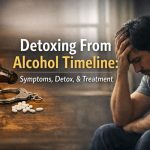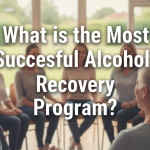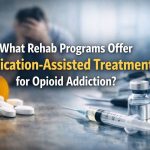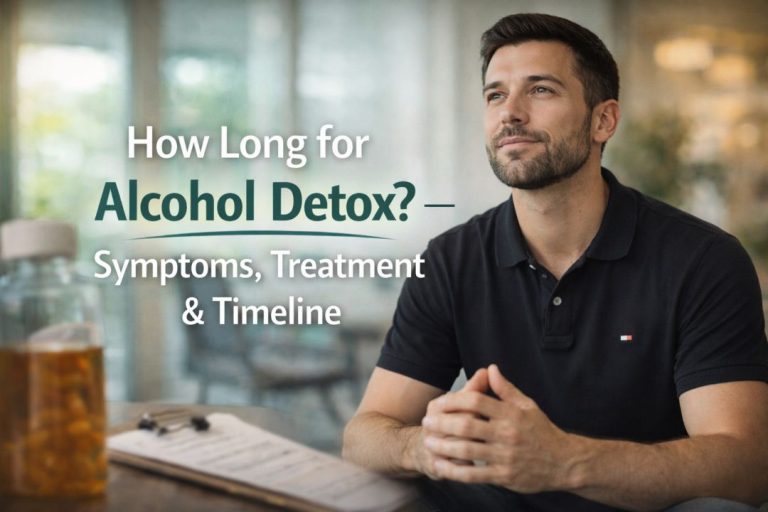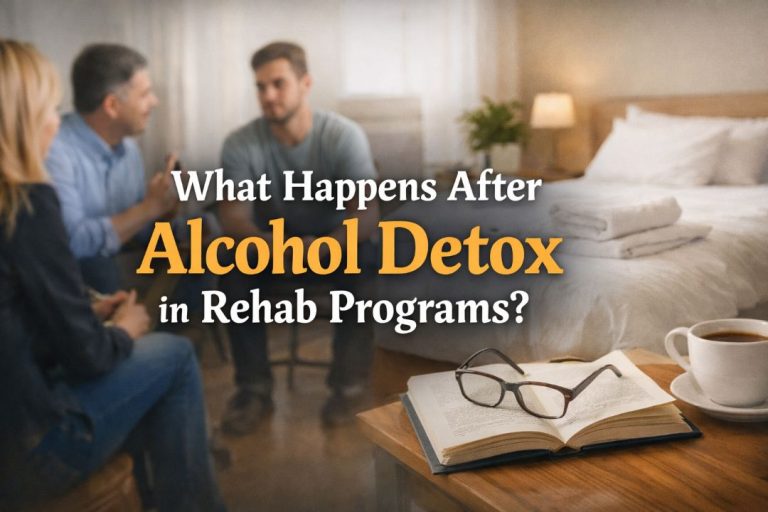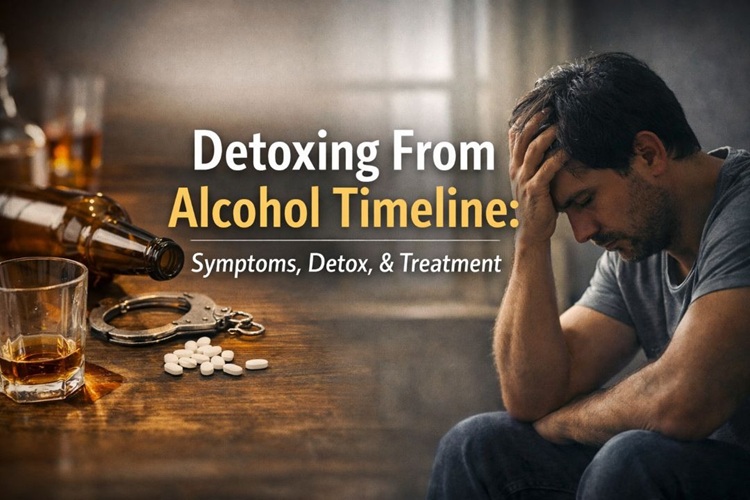Trauma is often connected to addiction. When you experience an adverse event like a natural disaster, chronic illness, childhood abuse, or domestic violence, it affects the way you interact with the world and leaves lasting symptoms. As a result, you might begin to use drugs or alcohol as a maladaptive coping mechanism, leading to the development of addiction.
According to a study published by Taylor and Francis, “approximately 75% of individuals with a substance use disorder (SUD) have experienced trauma at some point in their lives.”[1] In other words, the majority of people with an addiction have dealt with a traumatic event.
Because traumatic experiences can contribute to the development of addiction, you have to receive treatment for your trauma during drug and alcohol rehab. Also known as trauma-informed addiction treatment, these programs will offer traditional substance abuse recovery methods with comprehensive trauma care. You might engage in medical detox, therapy for addiction, counseling for trauma, and relapse prevention planning.
In this article, you will learn:
- How is addiction connected to trauma?
- Why does trauma need to be addressed during addiction treatment?
- What should you expect during a trauma and addiction rehab center in Florida?
How are Trauma and Addiction Connected?
If you experience trauma, you are at a higher risk of suffering from mental health issues like anxiety, depression, loneliness, mood swings, and mental health disorders like post-traumatic stress disorder (PTSD). This is because trauma can lead to long-term mental health symptoms that can be difficult to cope with, often impacting your ability to function in daily life.
As a result, you might begin to look for ways to cope with your symptoms. While abusing drugs and alcohol is not a healthy coping skill, it is common among people with trauma. Over time, you might develop an addiction to the substance you abuse, leading to co-occurring disorders.
Unfortunately, having unresolved trauma can complicate the addiction recovery process. If you never address or recover from your trauma, it increases your risk of relapsing once you get sober. This is why it is vital to receive treatment for trauma and addiction at the same time.
What to Expect During Rehab for Trauma and Addiction in Florida?
Having unresolved trauma intensifies your emotional responses, making any negative emotion feel ten times worse. As a result, you might develop an addiction due to using drugs and alcohol as a coping mechanism to numb those emotions. If you struggle with addiction and trauma, you should seek help for both issues at once.
Treatment for trauma and addiction in Florida involves the following services:
Medical Detox
The first step in recovering from addiction is medical detox. When you are addicted to drugs or alcohol, your brain and body become dependent. As a result, stopping the use of the substance will lead to withdrawal symptoms.
Medical detox lessens withdrawal symptoms and prevents cravings by offering you FDA-approved medications. You will also receive medical treatments like IV fluids and vitamin replacement therapy. Nurses will routinely check your vital signs to ensure you are medically stable.
Counseling for Addiction
Once you overcome detox, you can begin working on the psychological and behavioral aspects of addiction. You will engage in both individual and group therapy to gain the tools you need to achieve long-term recovery. Therapists use evidence-based therapies, which are proven effective in managing addiction through research and studies.
Examples of evidence-based therapies for substance use disorders include:[2]
- Cognitive behavioral therapy (CBT)
- Motivational interviewing (MI)
- Contingency management (CM)
- 12-step facilitation therapy
- The matrix model
- Family behavior therapy
Trauma-Informed Care
In addition to addiction counseling, you will receive therapy for your trauma. Trauma-informed care is a technique that therapists use to create a safe and healing space for you to process and recover from your trauma. They will use therapies that are clinically proven to be effective in the trauma healing process.
Examples of therapies you might engage in include:[3]
- Dialectical behavior therapy (DBT)
- Eye movement desensitization and reprocessing (EMDR)
- Mentalization-based therapy (MBT)
- Trauma-focused cognitive behavioral therapy (TF-CBT)
- Cognitive processing therapy (CPT)
- Exposure therapy
- And more!
If you have a mental health condition related to trauma like PTSD or borderline personality disorder, you will receive therapy that specifically targets the symptoms of your disorder.
Relapse Prevention and Aftercare
In addition to counseling, you will engage in relapse prevention planning to reduce the risk of returning to substance abuse. This often involves identifying potential triggers for relapse and developing healthy coping skills to maintain sobriety. You might also create a plan of action to use in case you relapse in the future.
Another important aspect of relapse prevention is aftercare. Trauma and addiction treatment centers in Florida offer the following aftercare services:
- Continued therapy
- Medication management
- Access to an alumni support group
- Referrals to outpatient or sober living programs
- Recommendations on local support groups like 12-step meetings
- Case management services like vocational assistance or other life skills training
100% Confidential Support is Available 24/7
No matter what you’re going through, you’re not alone. Our dedicated team is here to provide a safe, judgment-free space where you can talk openly and honestly. Whether you need emotional support, resources, or just someone to listen.
We’re here for you—completely confidential and always respectful of your privacy. Call us today!
Get Connected to a Trauma-Informed Addiction Treatment Center in Florida
If you or a loved one suffers from comorbid trauma and addiction, it’s time to seek professional help. At Solutions Healthcare, we have a comprehensive trauma and substance abuse rehab center that focuses on integrating trauma-informed care with transitional addiction treatment. Our program makes it possible to process your trauma in a safe space while providing you with the tools you need to maintain recovery from addiction.
Contact us today for more information on our addiction and trauma rehab center.
References
- Taylor and Francis Online: Childhood trauma among individuals with co-morbid substance use and post-traumatic stress disorder
- Science Direct: Evidence-based practices for substance use disorders
- The National Library of Medicine (NLM): Trauma-Informed Therapy







